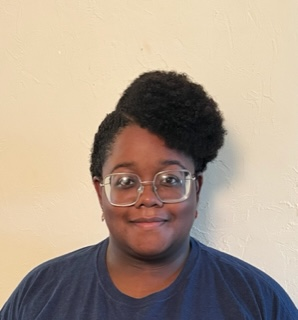
What made you decide to pursue graduate work?
The undaunting efforts of Dr. Robyn Walsh of getting me interested in the first place, and Dr. Pamela Hammons for teaching me how to study the Bible as literature as well as scripture. Dr. Walsh fostered my interests in early Christianity an opened my eyes to the concepts of “worldviews.” That, God’s grace, and a generous rewards package from Harvard Divinity School, and here I am.
Where have you been studying?
I’m currently pursuing a Master of Theological Studies degree at the Harvard Divinity School in Cambridge, Massachusetts. My focus is on the New Testament and Early Christianity. While classes haven’t officially started yet, I’ve enrolled in a class that analyzes the Apocrypha and the ancient audiences that the texts were made for. I’m excited to learn how the formation of the canon affected the participation of such audiences in what becomes the “Church.”
What are your career goals?
I plan to enter academia as a New Testament professor/researcher or, as a backup, I’d like to participate in my denominations’ Christian Education Department or in their Christian Education Publication company. Either way, I plan to contribute to Christian education and add to the academic research concerning the New Testament and Early Christianity.
How did your work in the Religious Studies department contribute to your decision to go to grad school?
I was able to solidify my interest in the New Testament and early Christianity from an academic viewpoint, and I was able to view the Christian Bible as both scripture and literature. Further, I realized how deeply my everyday worldviews are constructed based on ideas and concepts that may have entirely different meanings within their contemporary context and which have different meanings for people not aware of these texts and traditions. Thus, my journey to discover the context of Early Christianity started. My Religious Studies classes helped me realize that a lot of context is unknowingly lost in the present, and that present ideas and concepts often reconstruct the historicity of the past. For example, the separation of Christ and his movement from their Jewish origins.
What skills (e.g., critical thinking) did you learn from studying religion that might help you as you move forward?
I learned that most of my knowledge and how I relate to the world has been doused in a healthy dose of Religion. For example, one of my classmates has no idea who Noah was, nor the general plot of the Flood Narrative. It was like a Damascus Road experience for me, and I have come to realize that my knowledge of early Christianity, Christian History, and the development of the New Testament is influenced by current thinking and scholarship. I learned that to fully understand a religion that is being practiced or studied in the present, I have to understand the same within its own ancient context.
What advice can you give to other students who might be thinking about applying to graduate school?
Don’t be discouraged by lack of funds or time, apply. I would never have gotten this opportunity if I hadn’t at least tried. You miss 100% of the chances you don’t take. Apply and don’t be afraid to ask for help when it gets hard.
What is the one thing you will never forget about studying religion at UM? (a favorite memory, topic, reading, project)
I will never forget Dr. Walsh’s Star Wars as a religion class. It was, by far, the best time I’ve had studying religion at UM. It was engaging and I still can’t watch the franchise without drawing connections to Christian themes, Asian philosophy, and contemporary American idealism. I still follow the Jedi Church, which is (now) an official religion.




